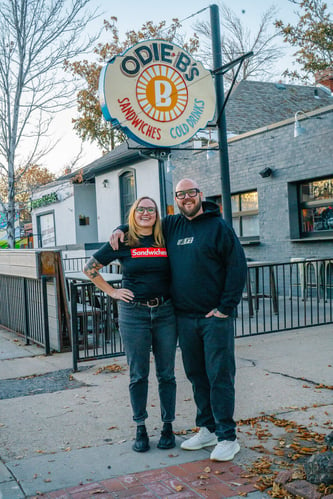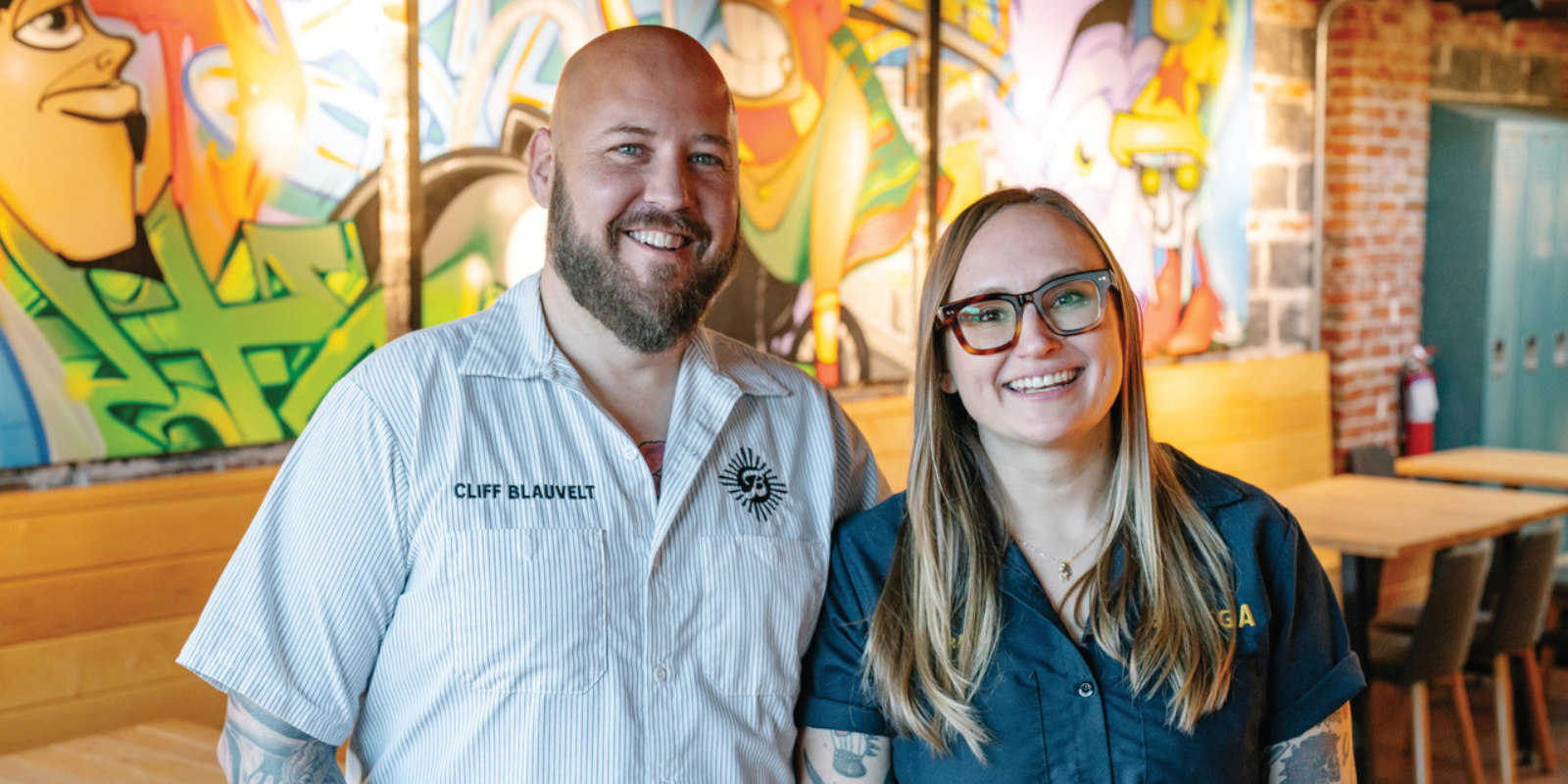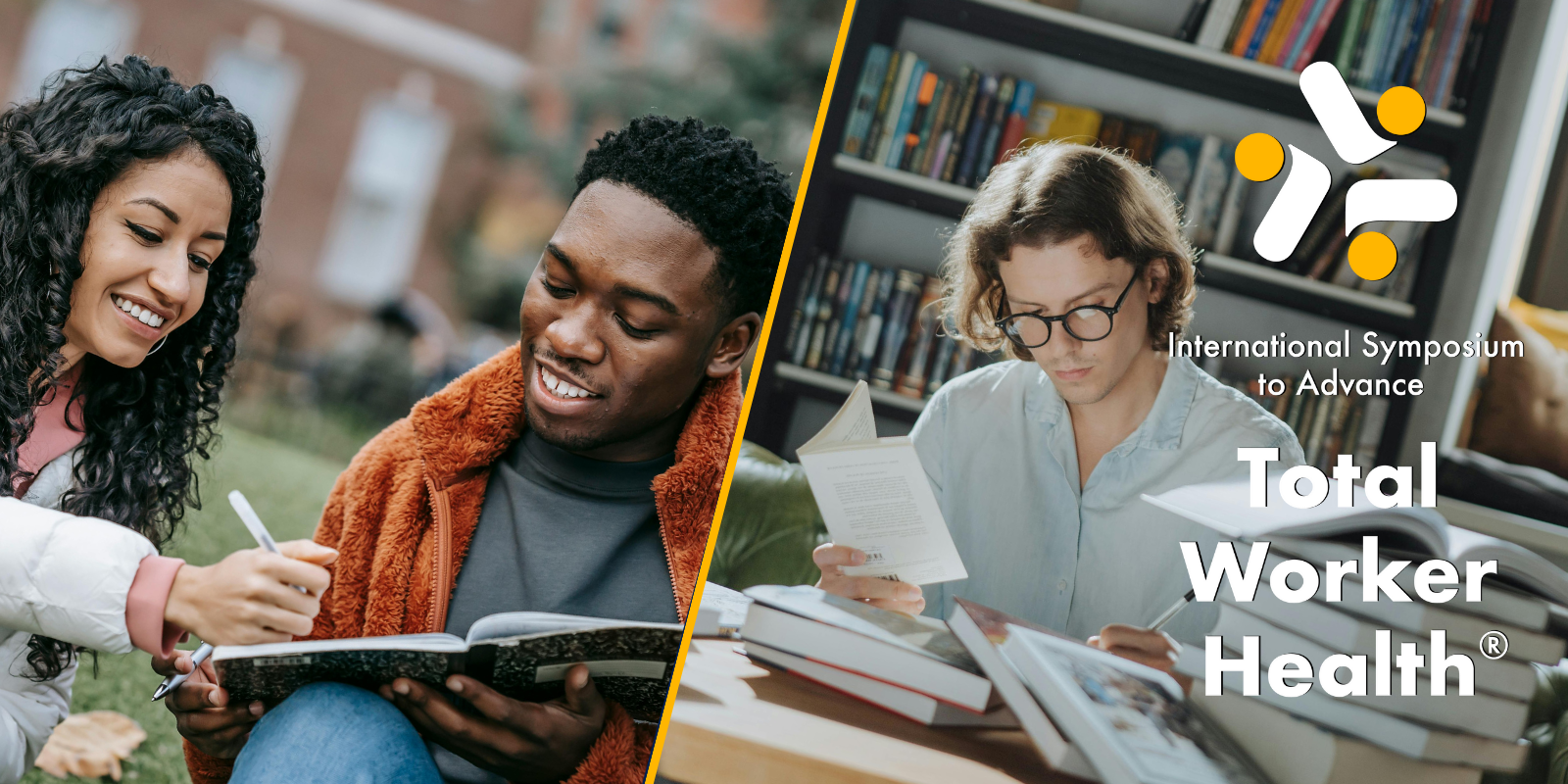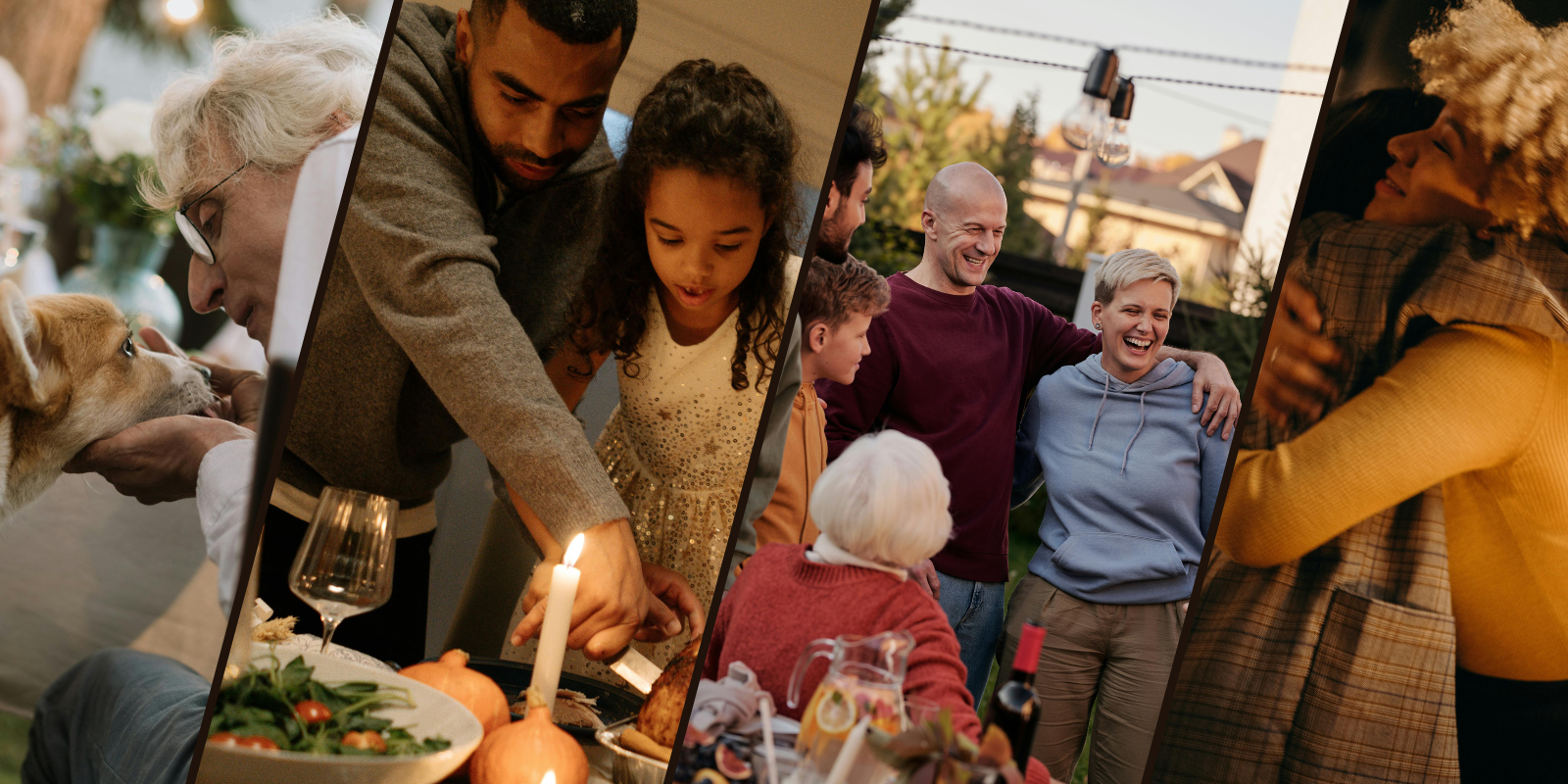Denver restaurateurs Cliff and Cara Blauvelt know firsthand the challenges of working in an industry where substance use isn’t just common — it’s deeply ingrained in the culture. Before committing to sobriety together in 2019, both struggled individually with alcohol dependency.
“It’s the only trade where you have a bar at your job, and that can cause some issues,” says Cara, recalling how her alcohol use escalated to an unsustainable level after she began restaurant work.
Cliff, whose career in the culinary arts spans two decades, says he was thriving professionally but privately struggling with an unhealthy relationship with alcohol.
“I had been trying to quit drinking ever since I started,” Cliff admits. Cara and I found each other at the perfect time.”
Turning A Dream into Reality
 The couple has leaned on each other since the early days of their recovery journey and will celebrate six years of sobriety in July. As their relationship grew, so did Cliff’s longstanding dream of owning a restaurant. In 2022, they launched their first venture, Odie B’s sandwich shop, in Denver’s Sunnyside neighborhood. A month after opening, Cliff and Cara got married, celebrating their reception at their new business.
The couple has leaned on each other since the early days of their recovery journey and will celebrate six years of sobriety in July. As their relationship grew, so did Cliff’s longstanding dream of owning a restaurant. In 2022, they launched their first venture, Odie B’s sandwich shop, in Denver’s Sunnyside neighborhood. A month after opening, Cliff and Cara got married, celebrating their reception at their new business.
Odie B’s has quickly become a staple of the community — not only for the customers who can’t get enough of the locally-sourced meats and ample vegan options – but for the staff who have found a supportive place to work and belong.
Fostering a Recovery Friendly Workplace
From the start, employee mental health and well-being have been core values of the business. The Blauvelts created a workplace that prioritizes their recovery — and that of others on a similar journey — just as much as the food they serve.
“With opening our first restaurant, we knew we wanted to do things differently,” Cliff says. “For me to say I care about the people, I needed to put in the time.”
Cliff connected with Culinary Hospitality Outreach and Wellness (CHOW), a Denver nonprofit supporting hospitality workers' mental health, to become a stronger mentor and source of encouragement for staff navigating addiction. There, he earned a Peer Support Specialist certification in mental health and substance use recovery.
“We’ve created a safe space — a very comfortable place — and it’s led to a really cool culture,” Cliff says.
The Blauvelts also offer their team competitive wages and stipends for health insurance. Employees receive 50% health coverage, while managers receive full benefits — an uncommon perk in an industry with razor-thin profit margins. To further promote their team’s mental and physical health, they host a Wellness Week each year.
The Blauvelts believe their efforts aren’t just good for their employees — it’s good for business, too.
“If we can take care of our people inside these four walls, then our team can take care of the community,” Cara explains.
While their willingness to hire employees in recovery might seem risky, it has led to remarkable retention. Cliff has also observed that staff seem happier overall. He estimates that roughly 60% of their staff are in active recovery, including some who decided to give up drinking after joining the team.
“Our employees understand that we understand,” Cliff says. “Being around us has seemed to help others just by proximity. We don’t see ourselves as an inspiration —we’re just people trying to do the right thing.”
Molly Ward, general manager of Odie B’s, recently marked two years of sobriety — a milestone she once thought would be out of reach. After years of working in restaurants and bars where drinking on the job was the norm, staying sober felt nearly impossible.
An employee since opening day, Ward credits the owners for nurturing a fun and supportive workplace.
“To the outside world, I seemed like a functioning adult, but I knew I was barely getting by,” she says. “If my previous jobs had been more recovery-friendly, quitting wouldn’t have felt so daunting the many times I tried before.”
The Blauvelts may be optimistic, but they certainly aren’t naive — they understand that addiction is a lifelong battle. Setting boundaries while maintaining their commitment to second chances remains a delicate balance.
Cliff and Cara have supported employees through their lowest points, and sometimes had to say goodbye to those who weren’t ready to continue their sobriety journey.
“The hardest part was the first relapse we experienced,” Cliff recalls. “It was shocking, heartbreaking. But we learned and grew from it.”
Partnering for a Bigger Impact
Recently, the Blauvelts became one of the first businesses to partner with the Colorado Recovery Friendly Workplace Initiative. Founded in 2023 and overseen by the Centers for Health, Work & Environment (CHWE) at the Colorado School of Public Health, the state-backed program launched publicly in January with a new website and certification program.
The initiative offers training, policy templates and guidance for creating recovery-friendly environments across all industries, not just hospitality. Employers can access resources for implementing mental health training, planning recovery-supportive events, drafting recovery-supportive policies and fostering empathy in workplace conversations.
“The fact is, in every profession, there are a lot of people in recovery. Thirty-to-40% of the adult population in the U.S. has some connection to substance use disorder, be it themselves or a loved one,” says David Shapiro, assistant director of programs and partnerships at CHWE and lead for the initiative.
“We want people to bring their whole selves to work and not hide under a medical condition that may keep them from being full present.”
The Blauvelts have already signed a letter of intent to become a Colorado Recovery Friendly Workplace and will soon attend their first training along with other participating Colorado organizations. Offered at no cost, the online and in-person sessions, will include topics such as recognizing impairment, relevant laws employers should be aware of, last chance agreements and hiring practices.
Shapiro has high praise for the Blauvelts’ openness and passion and hopes other business owners will take a page from their playbook. His goal is for the program to grow to several hundred participating workplaces throughout Colorado.
“The Blauvelts are reinforcing a culture of care and mentorship in an industry known for its pressures,” he says. “For us to build momentum, raise awareness and reduce stigma, we need more successful business owners and leaders in recovery — from any industry — to share their story.” - David Shapiro
A Model for Conscious Capitalism
 The Blauvelts’ approach is a rare example of conscious capitalism in action, proving that restaurants can be both financially viable and socially responsible. They’ve built a successful business by prioritizing people over profits while also balancing customer preferences, including offering alcoholic beverages on their menu.
The Blauvelts’ approach is a rare example of conscious capitalism in action, proving that restaurants can be both financially viable and socially responsible. They’ve built a successful business by prioritizing people over profits while also balancing customer preferences, including offering alcoholic beverages on their menu.
“Just because I can’t have a couple of drinks like a responsible adult, doesn’t mean the rest of the world can’t,” Cliff says. “We want to be open to everyone, we don’t want to alienate anybody.”
The Blauvelts recently opened a second, larger Odie B’s location in Denver’s River North (RiNo) neighborhood and are on track to launch their third restaurant later this year. Their latest concept, BoomBots pasta shop, should start welcoming customers later this summer. BoomBots and any future ventures will stay true to the couple’s recovery-friendly philosophy, creating a supportive space for those who have faced similar struggles.
“As two people in recovery, if we didn’t get another chance we wouldn’t be able to get to do what we do now,” Cliff says. “We have the desire and the drive to be there for employees and we are continuing to build our toolkit of resources.”
For more information, visit www.CORecoveryFriendlyWorkplace.org
All photos attributed to Behind the Apron Media.
About the Centers for Health, Work & Environment
The Centers for Health, Work & Environment (CHWE) educates and trains future leaders, conducts research, and designs and implements practical solutions to occupational safety and health challenges. CHWE collaborates with faculty, students, and community partners to advance worker health, safety, and well-being. Part of the Colorado School of Public Health, it is home to one of 10 nationwide Centers of Excellence for Total Worker Health®, the Mountain & Plains Education and Research Center (MAP ERC), and the Climate Impacts on Worker Health & Safety (CIWHS) Center. CHWE is located at the University of Colorado Anschutz Medical Campus in Aurora, Colorado.
About the Colorado School of Public Health
The Colorado School of Public Health is the first and only accredited school of public health in the Rocky Mountain Region, attracting top-tier faculty and students from across the country and providing a vital contribution towards ensuring our region’s health and well-being. Collaboratively formed in 2008 by the University of Colorado, Colorado State University, and the University of Northern Colorado, the Colorado School of Public Health provides training, innovative research, and community service to actively address public health issues, including chronic disease, access to health care, environmental threats, emerging infectious diseases, and costly injuries. For more information about ColoradoSPH, please visit https://coloradosph.cuanschutz.edu






